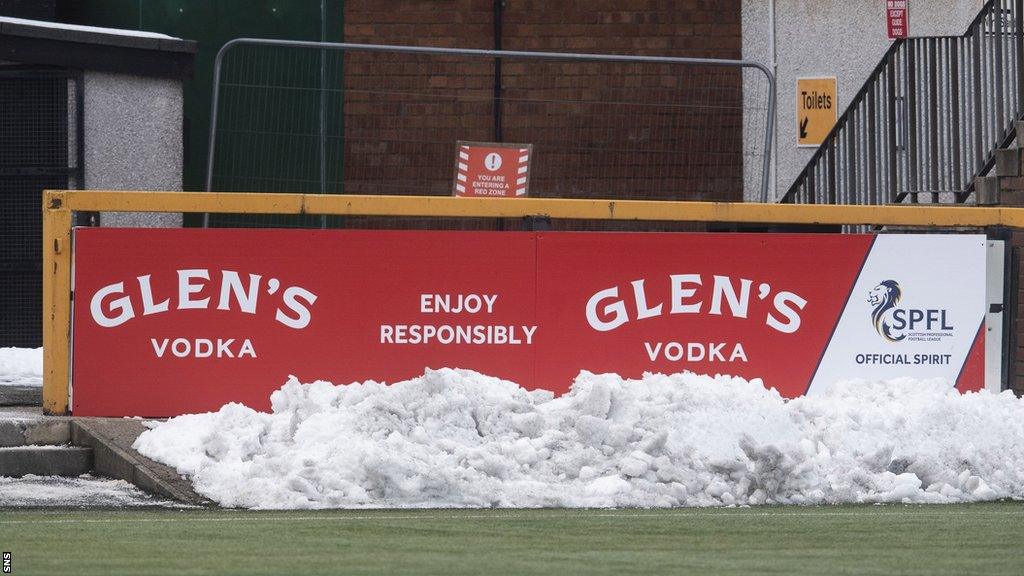Alcohol advertising ban could be 'grave' for Scottish football, SFA and SPFL warn
- Published

Scottish football has a long association with alcohol company sponsorship
A ban on alcohol advertising could have "extremely grave" consequences for football and jeopardise the country's chances of hosting major events, the Scottish Government has been warned.
The Scottish Professional Football League and SFA have responded to the Restricting Alcohol Advertising and Promotion consultation process., external
Drinks companies are heavily involved in sponsorship of many sports.
A ban could have "huge implications", claims the SPFL's Neil Doncaster.
The joint statement from football's governing bodies comes two days after Hampden Park in Glasgow was included among 14 venues in the UK and Republic of Ireland's bid dossier for hosting Euro 2028.
It also comes on the day world governing body Fifa announced that alcohol would not be sold to fans at the World Cup finals in Qatar, changing its policy two days before the start of the tournament in the Muslim country where its sale is strictly controlled.
"The Scottish Government's initial proposals raise a number of very profound questions," SPFL chief executive Doncaster said. "To consider just one example, if the government enforces a blanket ban on alcohol advertising in Scottish football stadia, there could be enormous consequences for all Scottish clubs playing in Europe, where brewers such as Heineken are at the centre of Uefa's family of sponsors.
"It is clear that the sporting, social and financial implications could be extremely grave. To remove that revenue stream, at a time when we are experiencing the most significant economic challenges for a generation, could have huge implications for clubs and Scottish sport more generally."
The consultation paper points out that the World Health Organization recommends restricting marketing to prevent and reduce alcohol-related harm and that countries like Ireland, France and Norway have already done so.
Scottish football's governing bodies plan to respond in more detail and have meanwhile encouraged supporters, clubs and other sporting and event bodies to do likewise to point out "the potential multi-million pound cost to the national game - and the entertainment industry as a whole - in Scotland".
SFA chief executive Ian Maxwell added: "Scottish football is already restricted by the Criminal Justice (Scotland) Act 1980, which for more than 40 years has prohibited the sale of alcohol within football grounds.
"We will contribute to the consultation to ensure a fact-based approach and to highlight the consequences of any legislation being imposed, not just financially but in potentially being precluded from bidding for major football events, as well as other world-class, international sporting events where alcohol partnerships are an integral part of a diverse sponsorship portfolio."
The SFA and SPFL both point out their role in promoting "responsible drinking".